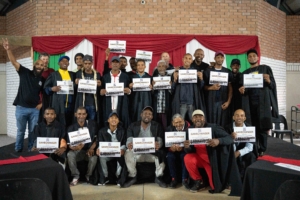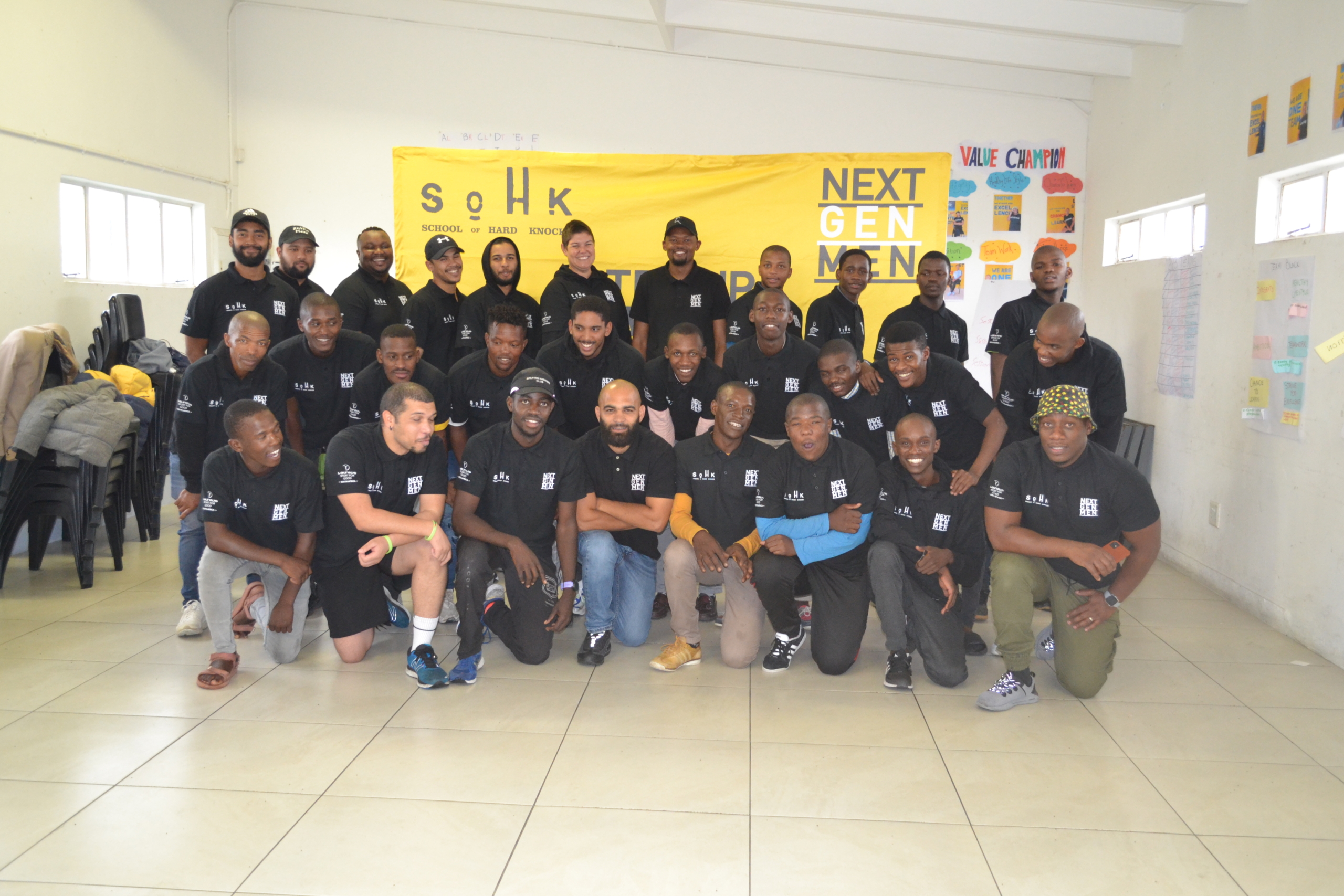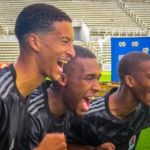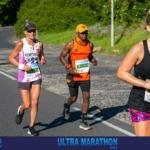Images: Supplied
Project NextGenMen is an initiative aimed at using sport to improve society – by developing youth who have a different understanding of what it means to be a man, and how to be positive game-changers in their communities.
It’s no secret that gender-based violence (GBV) is a deep-seated issue in South African homes, institutions, cultures and traditions. That’s why the School of Hard Knocks, an NGO, launched Project NextGenMen (NGM), an initiative aimed at using sport to improve society – actioning Nelson Mandela’s words that sport has the ability to change the world.
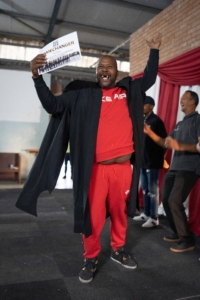
“We know there is a pandemic in South Africa of violence against women,” Vuyo Kayi, NGM project manager, explains. “To combat it, we need to help develop new ideas of manhood – for all men, regardless of race, geographical area, culture or creed. And for that, we need to create a platform for men to discuss deep and sensitive stuff.”
Established in 2022, NGM has become that platform – using the power of football to shift attitudes, hosting tournaments and delivering workshops around updating traditional gender norms, improving relationship health and, ultimately, reducing harmful behaviours towards women in Cape Town and surrounding areas.
On Saturday, NGM hosted another successful workshop in Harare, Khayelitsha which drew a big crowd and had former convicts as speakers.
“To make society better, we need to work with men,” explains Ashwin Engel, one of the NGM facilitators. “And instead of just scolding them, we need to talk to them and hear what men have to say about men.”
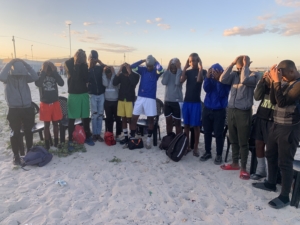
Supported by the Embassy of Ireland, the Ministry of Foreign Affairs of Denmark and the New Zealand High Commission, Project NGM starts with a look at the roles and expectations traditionally placed on men.
Workshops have sessions focusing on building healthy relationships, acting against GBV, dealing with emotions and creating support structures in communities – and what it means to be a man.
“We find that many men don’t know what picture they need to paint and what side of themselves they need to show to be real men,” Engel says. “That puts a lot of pressure on them. And because men don’t know how to deal with their emotions, they often use violence.”
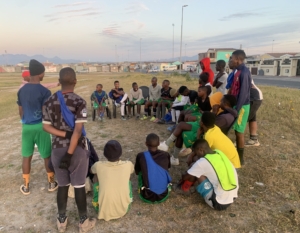
Men are asked to consider how a “TRADITIONAL MAN” acts and puts those answers in the traditional man “BOX”. Then participants are asked what men who step “OUTSIDE” this box act like, discussing examples of things they do around the house and in their community that go against traditional ideas of masculinity.
“Something that stood out is that men want to speak to other men about their issues. They are quite engaging and speak from the heart. Some opened up quite deeply about their challenges – and I admire them for that.”
According to Engel, the NGM curriculum stands out from the rest because they don’t point fingers at men.
“We try to help men instead of blaming the men for everything that is going wrong. There was a trend that ‘men are trash’. We are not on that; we are trying to find out what men have to say. And when you give a man a chance to voice himself, you will hear the truth and see that he reacts better.”
Developing Game-Changers: Who are the Next Generation Men?
Over 200 young men from mainly disadvantaged areas in Cape Town have been participating in the initiative.
Those who have come through the programme become “game-changers” – men who have a different understanding of masculinity and how this can be displayed in communities, and who know the importance of standing up against negative behaviours regardless of pressure from friends and others.
So…does it work?
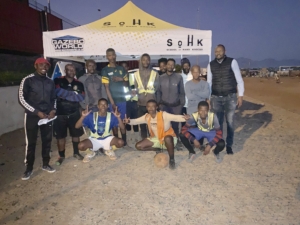
According to the evaluation results, intentions to act as gender allies increased by 30%, capacity to denounce violence increased by 31%, discussion about gender equality among participants increased by 59%, and knowledge about toxic masculinity increased by 220%.
But those are just the numbers. The impacts on individuals have been even more impressive.
“I have learned that it’s not always wise to act instantly,” one young man says. “The challenging part is my relationship with my father because of his actions. But since I came to this programme, I’ll have to see things differently and find out why he is doing what he is doing. I know it is not going to be easy.”
For Tsepo Mollisa, New Stars Coach, it’s essential to not only focus on playing football as sportspeople. “In this programme, we got to experience seeing things from a different perspective on gender-based violence. Now we know how to treat our sisters and mothers better.”
Asive Mashicila of Harare Goal Hunters FC adds: “In the NGM, we learned how to control ourselves as men, how to respond to issues we may have with women – and now I always challenge myself to check how I talk to women and older people.”
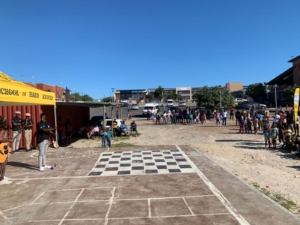
Ta Terror says a group of players from his team grew up as friends but turned out to be enemies after arguments about “men” following after going through the circumcision initiation. He took them to the NGM workshops, and their differences were resolved.
“Now they can joke around, and they are the players I have known all these years. I’m sitting here and watching people who are changing their characters. I’m very excited for them to be willing to learn and to be men enough to understand issues”.
Having enjoyed resounding success, a junior NGM programme is set to be piloted to teenage boys in the next few months. And in the meantime, there’s also Next Generation Women, designed to provide adolescent girls and young women with the mental health resources to deal with the challenges they face today.
